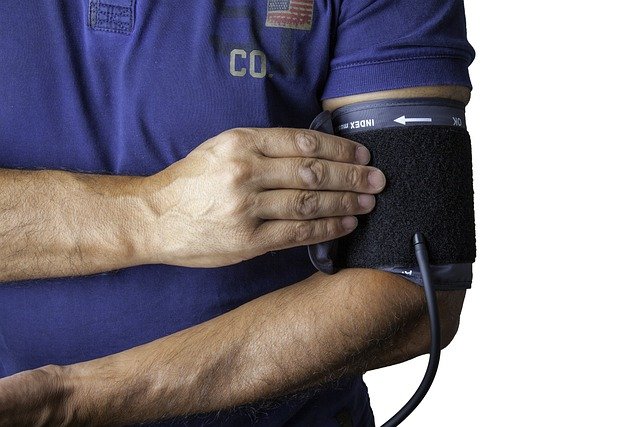Start a Career in Healthcare with Medical Training in the Netherlands
The healthcare sector in the Netherlands continues to grow, creating a steady demand for trained professionals across hospitals, clinics, and care facilities. As the population ages and medical needs evolve, more entry-level opportunities are becoming available — from roles in patient support and diagnostics to medical assistance and administrative healthcare functions. Many of these positions can be accessed through structured training programs that prepare individuals without prior experience for real-world challenges. Understanding what kind of training is needed, where it’s offered, and how to qualify can help anyone looking to enter this essential and expanding industry. Discover which medical careers are in demand today and how you can take your first step into healthcare.

What medical careers are in demand in the Netherlands today?
The Dutch healthcare system is experiencing a growing need for various medical professionals. Some of the most in-demand careers include:
-
Medical Assistants: These professionals support doctors and nurses in various clinical tasks, from patient care to administrative duties.
-
Eldercare Specialists: With an aging population, there’s a rising demand for professionals specialized in geriatric care.
-
Mental Health Support Workers: As awareness of mental health issues increases, so does the need for trained professionals in this field.
-
Diagnostic Technicians: Roles in medical imaging, laboratory work, and other diagnostic areas are crucial in modern healthcare.
-
Healthcare Administrators: The complex healthcare system requires skilled managers and administrators to ensure smooth operations.
Where can you find reliable medical training programs in the Netherlands?
Several institutions offer reputable medical training programs in the Netherlands:
-
ROC (Regional Education Centers): These vocational schools provide practical healthcare training programs across the country.
-
Hogescholen (Universities of Applied Sciences): Offer bachelor’s degree programs in various healthcare fields, including nursing and allied health professions.
-
Private Healthcare Academies: Specialized institutions focusing on specific areas of healthcare, such as eldercare or medical administration.
-
Online Learning Platforms: Some Dutch educational institutions offer online or hybrid programs for flexible learning options.
-
Hospital-Based Training Programs: Certain hospitals in the Netherlands provide on-the-job training for specific roles, often in partnership with educational institutions.
How to qualify for entry-level healthcare positions without prior experience?
Entering the healthcare field without previous experience is possible through several pathways:
-
Enroll in a Vocational Program: Many ROCs offer MBO (secondary vocational education) programs in healthcare that don’t require prior experience.
-
Participate in Internships: Some healthcare facilities offer internship programs that can lead to entry-level positions.
-
Volunteer in Healthcare Settings: Gain valuable experience and insight into the field by volunteering at hospitals, nursing homes, or community health centers.
-
Obtain Relevant Certifications: Short-term courses in first aid, patient care, or medical terminology can enhance your qualifications.
-
Learn Dutch: As most healthcare positions require interaction with patients, a good command of the Dutch language is often essential.
What skills are essential for success in medical assistant training?
Successful medical assistants possess a combination of technical knowledge and soft skills:
-
Communication: Clear and empathetic communication with patients and colleagues is crucial.
-
Attention to Detail: Accuracy in recording patient information and following medical procedures is vital.
-
Adaptability: The healthcare field is ever-evolving, requiring professionals to adapt to new technologies and procedures.
-
Time Management: Balancing various tasks and prioritizing patient needs is an essential skill.
-
Cultural Sensitivity: In the diverse Netherlands, understanding and respecting different cultural backgrounds is important in healthcare settings.
How long does medical assistant training typically take in the Netherlands?
The duration of medical assistant training in the Netherlands can vary depending on the program and level of education:
-
MBO Programs: These vocational programs typically last 2-4 years, depending on the level (MBO-2, MBO-3, or MBO-4).
-
HBO Programs: Bachelor’s degrees at Universities of Applied Sciences usually take 4 years to complete.
-
Short Courses: Some specialized training programs or certificates can be completed in a few months to a year.
-
Apprenticeships: Combined work-study programs may last 2-3 years, allowing students to earn while they learn.
-
Continuous Education: Many healthcare professionals engage in ongoing training throughout their careers to stay updated with the latest practices.
What are the career prospects and salary expectations for medical assistants in the Netherlands?
Medical assistants in the Netherlands can expect a range of career opportunities and competitive salaries:
-
Entry-Level Positions: Many start in hospitals, clinics, or general practices, assisting with basic patient care and administrative tasks.
-
Specialization: With experience, medical assistants can specialize in areas like pediatrics, geriatrics, or specific medical departments.
-
Career Advancement: Some may progress to supervisory roles or pursue further education to become nurses or other healthcare professionals.
-
Salary Range: Entry-level medical assistants typically earn between €1,800 to €2,500 per month, with potential for increase based on experience and specialization.
-
Job Security: The growing healthcare sector in the Netherlands offers stable employment prospects for trained medical assistants.
| Training Program | Provider | Duration | Cost Estimation |
|---|---|---|---|
| MBO-4 Medical Assistant | ROC Amsterdam | 3-4 years | €1,200 - €2,000 per year |
| HBO Bachelor in Healthcare | Hogeschool Utrecht | 4 years | €2,143 per year (EU students) |
| Medical Administration Course | LOI | 6-12 months | €1,500 - €2,500 total |
| Eldercare Specialist Program | Amstel Academie | 2 years | €3,000 - €4,000 per year |
| Healthcare English Course | British Language Training Centre | 3 months | €600 - €800 total |
Prices, rates, or cost estimates mentioned in this article are based on the latest available information but may change over time. Independent research is advised before making financial decisions.
In conclusion, starting a career in healthcare through medical assistant training in the Netherlands offers a promising pathway into a growing and essential industry. With various training options available and a strong demand for skilled professionals, individuals can find opportunities to enter the field and build rewarding careers. By understanding the requirements, investing in proper education, and developing key skills, aspiring medical assistants can position themselves for success in the Dutch healthcare system.
This article is for informational purposes only and should not be considered medical advice. Please consult a qualified healthcare professional for personalized guidance and treatment.




